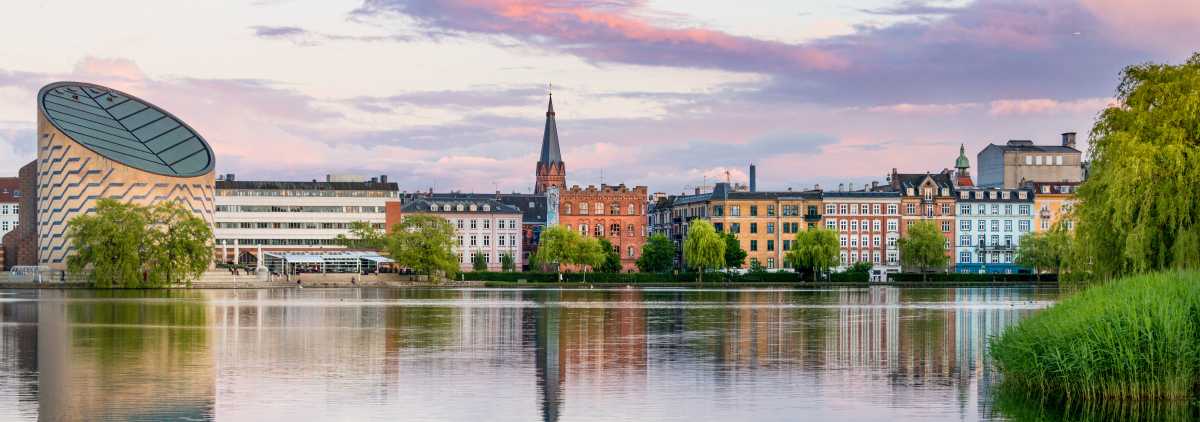Welcome to the InterNations Community of Expats in Denmark!
Hej, welcome to the expat community in Denmark. Whether you're moving to one of Denmark’s major cities, such as Copenhagen or Aalborg, or settling in the picturesque countryside, you're sure to enjoy the experience. Repeatedly voted the world's happiest people by international studies, the Danes have well and truly sorted out their work-life balance, with most employees enjoying flexible working hours and plenty of free time to spend with friends and family. Leisure time can be fairly daunting in a new environment, as you try to establish which restaurants, theaters, bars, and attractions are worthwhile and which ones you should avoid at all costs! One of the many benefits of being part of the InterNations community is that most of our members have been the newbie in a strange town or city at one time or another and have used the network to help them settle in.
Advertisement
Jürgen Hofmeister
The various InterNations activities for expats in Copenhagen made me feel welcome immediately.
Sarah Porter
InterNations expats let me see that there's much more to Copenhagen than clichés like The Little Mermaid and Tivoli...
Why you'll love InterNations in Denmark
and countless possibilities for fun and friendship!
Advertisement
Advertisement
Living in Denmark: Your Questions, Answered
If you're planning a move to Denmark or have recently arrived, you might have a few questions about what life will be like in this Scandinavian country. We've compiled the answers to seven common questions to help you get a better understanding of your new home. For more specific questions or to share your own experiences, consider joining InterNations, a community of expats who love helping each other navigate their new lives abroad.
1. Is it necessary to speak the local language?
Danish is the official language in Denmark, but English is widely spoken, and many locals are fluent. While it is not necessary to speak Danish for day-to-day interactions, learning the language can enhance your experience and help you integrate better into the local community.
2. What are the average rent prices in popular expat locations?
Copenhagen:
- Single-room flat: 8,000–12,000 DKK (1,200–1,800 USD) per month
- Three-bedroom flat: 15,000–25,000 DKK (2,250–3,750 USD) per month
Aarhus:
- Single-room flat: 5,000–8,000 DKK (750–1,200 USD) per month
- Three-bedroom flat: 10,000–18,000 DKK (1,500–2,700 USD) per month
Odense:
- Single-room flat: 4,000–7,000 DKK (600–1,050 USD) per month
- Three-bedroom flat: 8,000–14,000 DKK (1,200–2,100 USD) per month
3. How safe is Denmark for expats?
Denmark is generally considered a safe country for expats. However, it's important to exercise common-sense precautions like being aware of your surroundings, securing your belongings, and staying informed about local safety updates.
4. How does the education system work in Denmark?
The Danish education system is well-regarded and offers a range of options, including public, private, and international schools. Many expat families choose international schools to provide their children with an education in English or another language, and these schools often follow international curricula.
5. How can I open a bank account in Denmark?
To open a bank account in Denmark, you'll typically need a valid ID or passport, proof of address, and a Danish personal identification number (CPR). Some banks may have additional requirements, so it's best to check with your chosen bank for specific details.
6. What is the cost of living in Denmark?
The cost of living in Denmark is relatively high compared to other countries, but it is balanced by a high standard of living and comprehensive social benefits. Some major expenses include housing, transportation, and groceries. However, healthcare and education are generally of high quality and free or low-cost for residents.
7. How does the public transportation system work in Denmark?
Denmark has a well-developed public transportation system, including buses, trains, and trams. The main cities offer efficient and reliable services, while the rural areas have less frequent connections. Rejsekort, a smart card system, can be used for most public transport services and offers discounted fares.
Advertisement
Join Our Online and In-Person Events in Denmark
Attend our many events to get to know like-minded expats, both in Denmark and around the world! Our new online events even let you find connection and inspiration without leaving your home.




Advertisement
Connect with Like-Minded Expatriates in Denmark
Advertisement
Our Global Partners
Pursue your hobbies with amazing new friends
Do you like culture and music? Books? Food? Or is having a relaxed coffee and a chat more your thing? Whatever you're into, we've got the group for you. So go ahead and do more of what you love in Denmark - or learn something new!
Advertisement
Learn about Expat Life in Denmark
In the future, you may be sitting next to the Eriksen statue of The Little Mermaid (Den Lille Havfrue to the locals) on Copenhagen’s waterfront, eating smørrebrød, reading Hans Christian Andersen and feeling like a stereotypical local, but expat life in the early days is not without its challenges. The InterNations community can support you though this and advise you about Danish healthcare, education, visas, and property rental. They are a friendly bunch, more than happy to share, not only their top tips, but also the mistakes and pitfalls in their expatriate journey to help you avoid the same problems. InterNations can also make it easier to negotiate cultural differences with the Danes that may otherwise go unexplained. Did you know, for example, that what is often considered unfriendliness in Danish people is actually a deep-rooted respect for privacy? So, if you feel miffed that a Danish colleague isn’t taking an interest in what you got up to on the weekend, they may just feel that it isn’t their business to enquire.
InterNations is the largest global network for expatriates, with communities in 420 cities around the world. Meet fellow global minds in your city of residence or get to know local expatriates before you're moving or traveling abroad and never feel like a stranger. InterNations makes it easy for you to stay in touch with your expat friends, both online and offline, so you can grow your network of friends and contacts from all over the world. Whether they live in China or Peru, InterNations allows you to be close to them even if they are miles away.
Build Your Network of Expats in Denmark
Meeting new friends and establishing a new social circle in Denmark couldn’t be easier with InterNations. Whether you’re a foodie with a passion for wine tasting and good restaurants or a sporty type with a yen to discover new running routes in your locality, you can use the forum to meet like-minded expats who can help you get the most out of your time. The InterNations expat community isn't just web-based. There are local get-togethers covering a range of interest groups and you can also take advantage of the large-scale community-wide events, organized to help you meet other expats and share your experiences of living and working abroad. In Copenhagen alone there is a Spanish Language Group, a Movie Group, a Photography Group, and even a Pole Dance Group! If your interests aren't catered for, why not propose your own group? You never know, there may be expats in your area just waiting to pursue the same hobby as you!
Advertisement
Communities in Denmark
Like-Minded Expatriates in Denmark
Denmark Guide Topics
Advertisement











